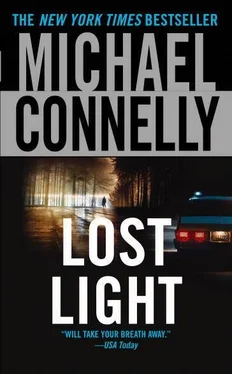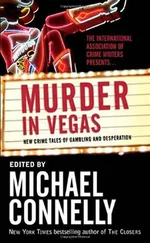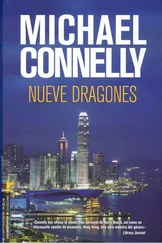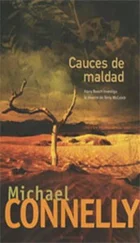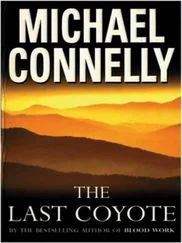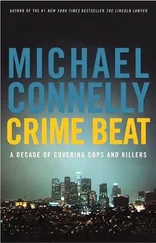We had been meeting two afternoons a week for six months. I had first seen Sugar Ray play on a hospital ship in the South China Sea. He had been part of the Bob Hope entourage that came to entertain the wounded during Christmastime 1969. Many years later, in fact one of my last cases as a cop, I was working a homicide and came across a stolen saxophone with his name engraved inside the mouth. I tracked him to Splendid Age and returned it. But he was too old to play it anymore. His lungs no longer had the push.
Still, I had done the right thing. It was like returning a lost child to a parent. He invited me to Christmas dinner. We stayed in touch and after I pulled the pin I came back to him with a plan that would save his instrument from gathering dust.
Sugar Ray was a good teacher because he didn’t know how to teach. He told me stories and told me how to love the instrument, how to draw from it the sounds of life. Any note I could sound could bring out a memory and a story. I knew I was never going to be any good at playing the sax but I came twice a week to spend an hour with him and hear his stories about jazz and feel the passion he still carried for his deathless art. Somehow it got inside me and came out in my own breath when I held the instrument to my mouth.
I lifted the saxophone out of the case and held it in position, ready to play. We always began each lesson with me trying to play “Lullaby,” a song by George Cables that I had first heard on a Frank Morgan disc. It was a slow ballad and easier for me to play. But it was also a beautiful composition. It was sad and steadfast and uplifting all at the same time. The song wasn’t even a minute and a half long but to me it said all that ever needed to be said about being alone in the world. Sometimes I believed that if I could learn to play this one song well, then that would be enough for me. I would not be wanting.
Today it felt like a funeral dirge. I thought about Martha Gessler the whole time I played. I remembered her picture in the paper and on the TV at eleven. I remembered my ex-wife talking about how they had been the only two females on the bank robbery squad at one time. They took a constant ration of abuse from the men until they proved themselves by working together and taking down a robber known as the Two Step Bandit because he always did a little dance as he left a bank with the loot.
As I played, Sugar Ray watched my finger work and nodded approvingly. Halfway through the ballad he closed his eyes and just listened, nodding his head with the beats. It was a high compliment. When I finished the piece he opened his eyes and smiled.
“Gettin’ there,” he said.
I nodded.
“You still got to get the smoke out of your lungs. Get your capacity up.”
I nodded again. I hadn’t had a cigarette in more than a year, but I had spent most of my life as a two-pack-a-day man and the damage was done. Sometimes putting air into the instrument was like pushing a boulder up a hill.
We talked and I played for another fifteen minutes, taking a hopeless shot at “Soul Eyes,” the Coltrane standard, and then working the bridge of Sugar Ray ’s own signature song, “The Sweet Spot.” It was a complicated riff but I had been working on it at home because I wanted to please the old man.
At the end of the abbreviated lesson I thanked Sugar Ray and asked if he needed anything.
“Just music,” he said.
He answered that way every time I asked. I put the instrument back into the case-he always insisted I keep it with me for practicing-and left him there in the music room.
As I was heading back down the hallway to the main entrance a woman named Melissa Royal was approaching from the other way. I smiled.
“Melissa.”
“Hi, Harry, how was the lesson?”
She was there to see her mother, an Alzheimer’s victim who never knew who she was. We had met at the Christmas dinner and then had run into each other during our separate visits. She started timing her visits to her mother with my three o’clock lessons. She didn’t tell me this but I knew. We had coffee a few times and then I asked her out to hear some jazz at the Catalina. She said she had fun but I knew she didn’t know or care much about the music. She was just lonely and looking for someone. That was okay with me. We’re all that way.
That was how it stood. Each of us waiting for the other to make the next move, though her showing up when she knew I was scheduled to be there was a move in some way. But seeing her now was a problem. I had to get rolling if I was going to make it to Westwood on time.
“Gettin’ there,” I said. “At least that’s what my teacher tells me.”
She smiled.
“Great. Someday you’re going to have to perform for us here.”
“Believe me, that day is a long way off.”
She nodded good-naturedly and waited. My turn now. She was in her early forties, divorced like me. She had light brown hair with lighter streaks in it that she told me she had added in the beauty shop. Her smile was the thing, though. It took over her whole face and was infectious. I could tell that being with her would mean working night and day to keep that smile going. And I didn’t know if I could do it.
“How’s your mother doing?”
“I’m about to go find out. Are you leaving? I thought maybe I could check in with her and we could get some coffee in the cafeteria.”
I put a pained look on my face and checked my watch.
“I can’t. I have to be in Westwood at four.”
She nodded like she understood. But I could see in her eyes that she was taking it as a rejection.
“Well, don’t let me hold you up. You’ll probably be late as it is.”
“Yeah, I should go.”
But I didn’t. I stood looking at her.
“What?” she finally asked.
“I don’t know. I’m kind of involved in this case at the moment but I was trying to think of when we could get together.”
Suspicion entered her eyes and she gestured toward the saxophone case in my hand.
“You told me you were retired.”
“I am. I’m kind of working this on the side. Freelance, you could say. That’s where I have to go now, to go talk to an investigator at the FBI.”
“Oh. Well, go. Be careful.”
“I will. So can we get together maybe one night next week or something?”
“Sure, Harry. I’d like that.”
“Okay, good. I want to, Melissa.”
I nodded and she nodded and then she made a move toward me and came up on her toes. She put one hand on my shoulder and kissed me on the cheek. Then she continued down the hallway. I turned and watched her go.
I walked out of that place wondering what I was doing. I was holding out hope of something to that woman that I knew deep down I could not deliver. It was a mistake that was born of good intentions but that would ultimately hurt her. As I got into the Mercedes I told myself I had to end it before it started. Next time I saw her I would have to tell her I was not the man she was looking for. I couldn’t keep that smile on her face.
It was 4:15 by the time I got to the federal building in Westwood. As I was heading through the parking lot toward the security entrance my cell phone rang. It was Keisha Russell.
“Hey, Harry Bosch,” she said. “Wanted to let you know, I printed out everything and put it in the mail. But I was wrong about something.”
“What was that?”
“There was an update on the case. It ran a couple months ago. I was on vacation. You stick around here long enough and they give you four weeks paid vacation. I took it all at once and went to London. While I was gone it was the third anniversary of Martha Gessler’s disappearance. People were poaching on my beat right and left, I tell you. David Ferrell did an update. Nothing new, though. She’s still in the wind.”
Читать дальше
